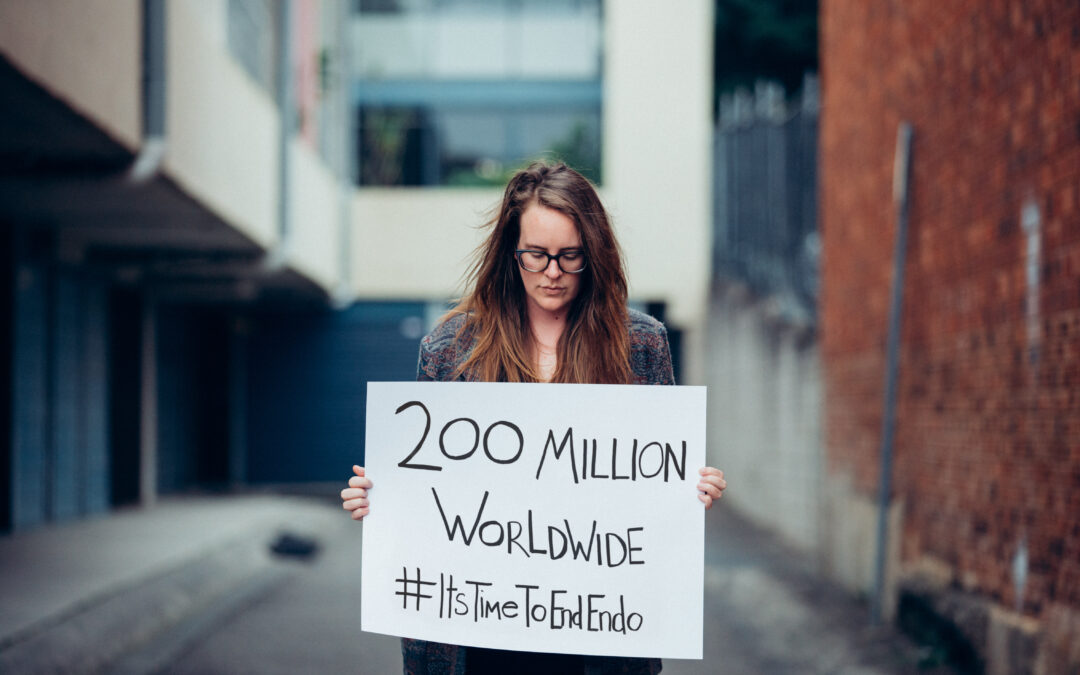A couple of weeks ago I had one of the most brutal periods I’ve ever experienced.
The pain, coupled with bouts of nausea hit me hard. I was forced to spend the entire day in the foetal position moving only between the bed and the bath. Even my strongest painkillers barely made a dent and I was not ok.
During that day, as I practised deep breathing, tried a tens machine and clutched my heat pack, I started to wonder if this would be my life now. I spiralled at times into deep anxiety wondering if my endo was recurring, and if it was, would there be anything that could help this time. Why me? I was exhausted, angry and utterly defeated.
There are approximately 200 million people across the world that suffer and live with endometriosis. Chances are if you are reading this you are one, or you know one.
200 million. I find that number both comforting and disheartening. While it helps me feel less alone, it also makes me feel sad that this is a condition that is so common yet often so misunderstood.
200 million. I find that number both comforting and disheartening. While it helps me feel less alone, it also makes me feel sad that this is a condition that is so common yet often so misunderstood.
Endometriosis is a whole-body disease that has been found to affect every organ in the body- recently even the spleen has been getting some attention. It is so much more than painful periods, or pain with sex. Endo can be all-encompassing and utterly awful. It is a condition that needs more funding, better treatment and ideally a cure.
This month is endometriosis awareness month. I think it is important at this time to raise awareness for the disease and to push for better more effective treatments. I also strongly feel that is necessary to acknowledge that this condition affects the whole person – including their mental health.
The toll the disease takes on the body alone is enough to be depressing. Couple that with the questions it might raise for fertility, the costs associated with expert and invasive treatments and the lifestyle changes that may be necessary to cope day to day, can make it a nightmare.
It’s a marathon, not a sprint – and given the choice, it’s not a marathon I’d willingly enter again.
Over the past few months, I was counting myself fortunate. I had been experiencing minimal pain and intermittent symptoms and was focused on trying to regain strength and manage my mental health the best I could.
Looking back now those minimal symptoms included stabbing knife-like pain in my vagina, back and side, nausea, diarrhoea, bloating and fatigue. While to me this felt like nothing compared with the almost daily pain I had experienced prior to surgery, it was still significant.
I struggle at times balancing what I need with being kind to myself. I have come to accept a level of pain in my life as ‘normal’ and I hate that. I often feel pathetic for needing so much rest and the thought of my period is always anxiety-producing.
I think it can be helpful to acknowledge that sometimes things are a bit shit. It’s ok not to be doing ok, even if things have improved for you.
It’s ok not to be doing ok, even if things have improved for you.
Talking about it can help. Finding others who have similar experiences can also help. Sometimes just acknowledging it can be the first step.
As we stumble through the marathon of endo and all that entails, I want to encourage you to check in with the person you know who might also be struggling. Ask them how they are really doing?
I’m hoping that you are all doing the best that you can, and for those who might be struggling, I hope you are able to reach out and access the help that you need.
Sending love
Rach
XX
Photography by Cole Bennetts
Written by,
Rachel Burke

